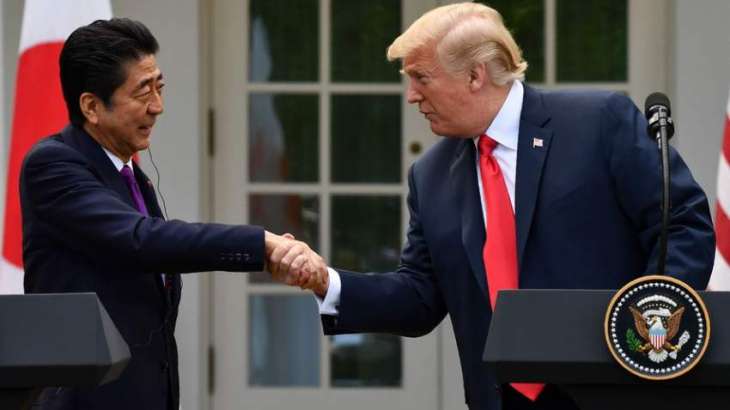The Japanese parliament rubber-stamped a new US-Japan trade deal, initially agreed between President Donald Trump and Prime Minister Shinzo Abe in September, which will cut tariffs on agricultural products from 2020 onward, media reported on Wednesday, although a separate deal concerning tariffs on the automotive industry is still to come
MOSCOW (Pakistan Point News / Sputnik - 04th December, 2019) The Japanese parliament rubber-stamped a new US-Japan trade deal, initially agreed between President Donald Trump and Prime Minister Shinzo Abe in September, which will cut tariffs on agricultural products from 2020 onward, media reported on Wednesday, although a separate deal concerning tariffs on the automotive industry is still to come.
Japanese politicians voiced their approval to the deal, which lowers tariffs in accordance with guidelines established by the US-abandoned Trans-Pacific Partnership (TPP) scheme, in parliament on Wednesday, Japanese broadcaster NHK World reported. The deal is set to come into force on January 1, 2020.
Earlier in the year, Trump and Abe reached a trade agreement which included commitments on digital trade amounting to $40 billion, and allows for approximately $7 billion in US agricultural products to enter the Japanese market.
Lowering tariffs on products such as beef and pork offer the potential for increased Japanese exports to the US, the broadcaster stated.
However, high tariffs on the US importation of Japanese rice will remain in force, despite Washington's attempts to reach an agreement establishing a tariff-free quota of 70 thousand tonnes annually.
While the two countries reached agreement on agricultural and digital trade, the broadcaster reported that Trump and Abe are no closer on striking a deal on tariffs set in force on the automotive industry.
The current trade deal between the US and Japan retains 2.5-percent tariffs on cars and auto parts. This has been a sticking point between the two countries for years. Tokyo has consistently sought to remove automotive tariffs altogether, as cars comprise the largest part of their exports to the US. According to media reports, both sides have agreed in principle to eliminate these tariffs, but have yet to agree on a timeframe.
The US-Japan trade talks were triggered by Washington's withdrawal from the TPP trade agreement in 2017 and Trump's announced course on signing bilateral trade deals with other states. The TPP was signed by Australia, Brunei, Canada, Chile, Japan, Malaysia, Mexico, New Zealand, Peru, Singapore, Vietnam, and the United States in February 2016. The deal never took effect as Washington withdrew from the partnership in January 2017.
Japan and the US reached a trade deal that cut tariffs on agricultural and industrial products in late September in New York, with both hailing the deal as mutually beneficial. Under the terms of the trade agreement, Japan will lower or fully eliminate tariffs for a number of US products, including beef, pork, wheat, cheese, corn and wine.




